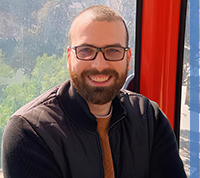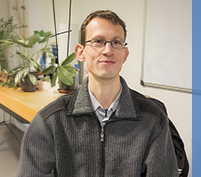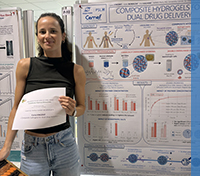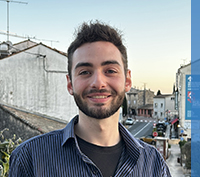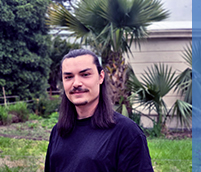PhD defence of Matheus Brozovic Gariglio
2 February 2023
Matheus Brozovic Gariglio defends his PhD in Computational Mechanics and Materials on Feb. 2, 23
A multiscale study of microstructural evolutions in hot-deformed two-phase titanium alloys
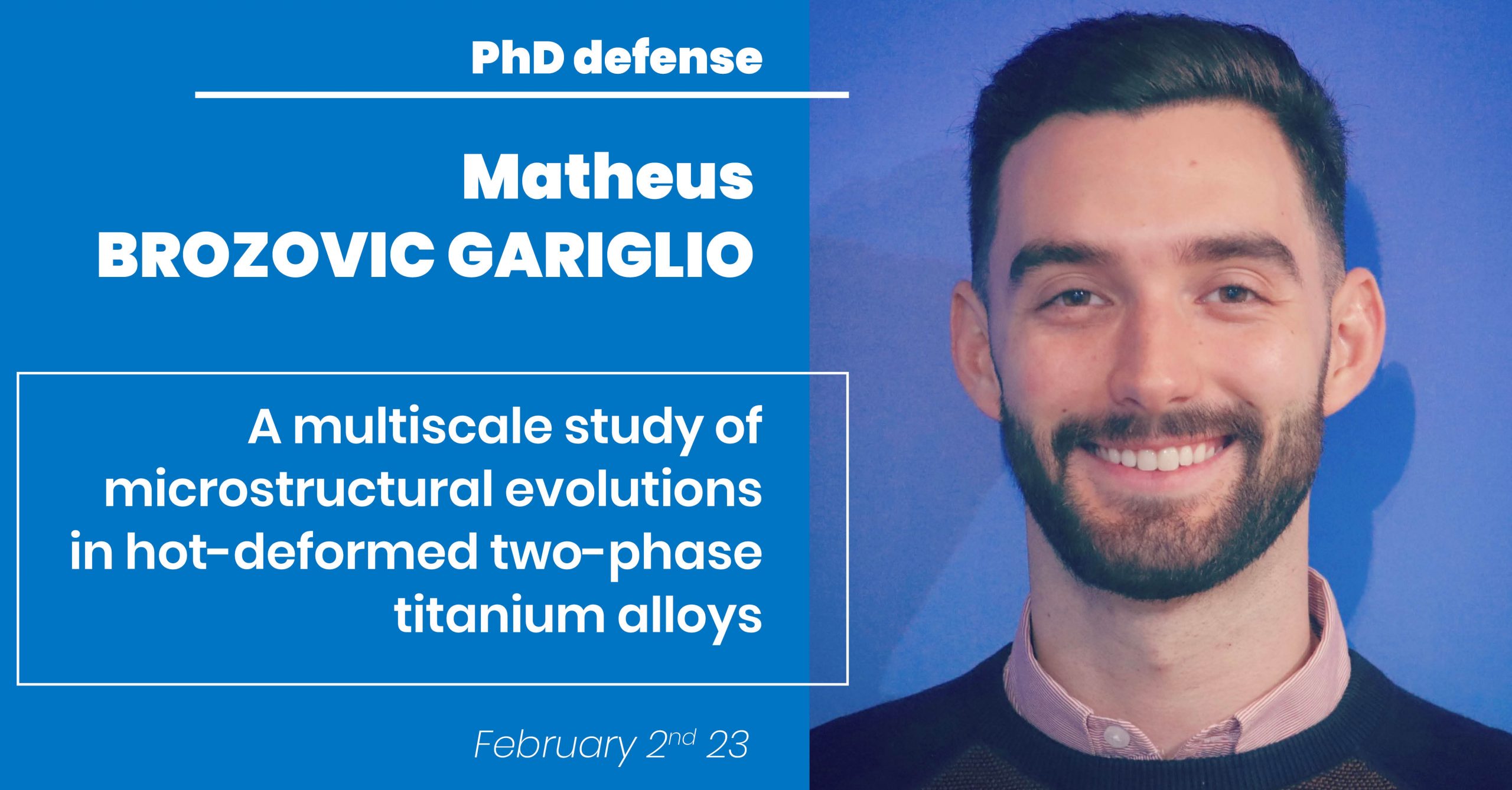
Matheus Brozovic Gariglio conducted his PhD work under the supervision of Nathalie Bozzolo (MSR team) and Daniel Pino Munoz (CSM team). He defends his PhD in "Computational Mechanics and Materials" on February 2nd, 23 in front of the following jury:
– Olivier CASTELNAU, Arts et Métiers, reviewer
– Maria Cecilia POLETTI, Graz University of Technology, reviewer
– Christian DUMONT, Aubert & Duval
– Jérôme DELFOSSE, SafranTech
– Frédéric PRIMA, Chimie Paris – PSL
– Nathalie BOZZOLO, Cemef Mines Paris – PSL
– Daniel PINO MUNOZ, Cemef Mines Paris – PSL
Abstract:
Titanium alloys are widely used in the aeronautical industry, thanks to their properties of resistance to temperature and corrosion, but above all their low density. These properties are strongly linked to the microstructure, itself resulting from the hot forging operations implemented to manufacture industrial parts. The optimization of the properties therefore requires controlling the impact of the thermomechanical parameters on the microstructure evolution. The two-phase (α/β) nature of certain titanium alloys offers, for a given grade, a very wide variety of possible microstructures, thus a certain flexibility in the adjustment of the properties. Two titanium alloys are studied in this work: the Ti-6Al-4V (α+β) alloy used in turbojet, and the Ti-10V-2Fe-3Al (metastable-β) alloy used in landing gears. The main objective of this work is to evaluate and describe how the dislocation density is distributed between the α and β phases, depending on the thermomechanical parameters and the initial microstructure. Three distinct and complementary approaches are implemented: experimental at the microscopic and at the macroscopic scale, as well as by numerical simulation. A large part of the results of this thesis come from fine microstructural analyses, mainly in the form of orientation maps obtained by electron backscattered diffraction (EBSD), but also in the form of complementary three-dimensional characterizations. Advanced EBSD data post-processing techniques are used to assess dislocation densities from measured intragranular misorientations. The macroscopic approach is based on the analysis of stress-strain curves from hot compression tests. Finally, full-field plastic deformation simulations are performed on artificial and experimental microstructures. The discussion confronts the results obtained by these three approaches and shows that any direct comparison should be avoided. For each of the phases, key microstructural elements, mainly in terms of crystallographic texture and dynamic recrystallization, are given in order to link these approaches to better estimate the dislocation density, therefore of microstructure evolution. This work provides elements for a better understanding of the behavior of titanium alloys, assisting the industrial financial partners (Airbus, Aubert & Duval, Safran and Timet) to optimize the forging routes.
Keywords: Microstructure, titanium, hot deformation, two-phase, EBSD, dislocation density




